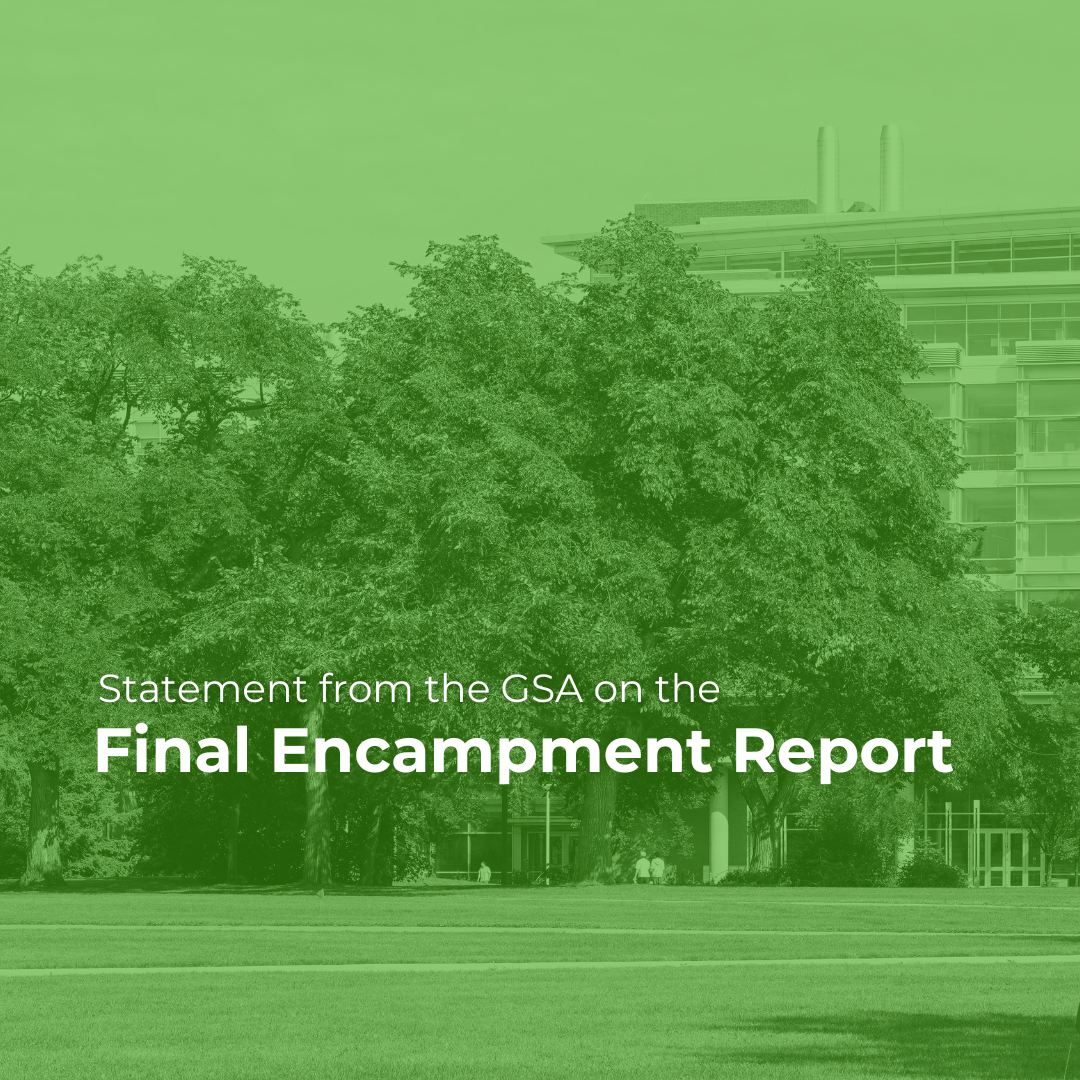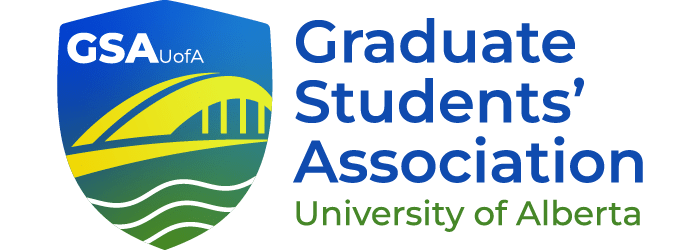

The Graduate Students’ Association (GSA) has issued a response to the independent review of the encampment protest that took place on campus in May 2024. In this statement, the GSA addresses the findings of the report, expresses concerns regarding the university administration’s handling of the situation, and outlines recommendations to prevent similar occurrences in the future.
The Graduate Students’ Association (GSA) acknowledges the independent review into the events surrounding the encampment protest in May 2024. Led by Hon. C. Adèle Kent. Although the report provides her personal assessment of the decisions made by the university administration, it has highlighted critical failings in how the university administration handled this situation. While we recognize the thoughtful assessment provided in the report, many students have voiced concerns that the administration prioritized legal defensibility over ethical principles. This approach stands in stark contrast to the university’s stated commitment to fostering a “culture of care” outlined in the People Strategy and the other values in the Student Experience Action Plan (SEAP) and the “University of Tomorrow” framework.
The encampment was a direct response to growing frustrations among students who felt their voices were ignored about the Palestinian crisis. The report affirms that early and meaningful engagement could have prevented the escalation that ultimately led to EPS involvement in the forceful removal of the encampment. As student representatives, we share these concerns and emphasize that decisions during such crises should reflect the core values of inclusivity, respect, and trust-building.
In our letter to the third-party investigator, we talked about several measures that, if taken, could have prevented the need for escalation. These measures included engaging directly with protestors, clearly communicating potential ramifications to students, pursuing legal injunctions as an alternative to police involvement, avoiding inflammatory narratives, and ensuring transparent decision-making processes. The final report aligns with many of these suggestions, and we believe they are vital steps to prevent future reliance on force during peaceful students’ protests.
We acknowledge the final report’s recommendations, which include:
- Revising investment policies to ensure alignment with the university’s ethical commitments and core values, creating a foundation for greater accountability.
- Developing a consistent protocol to consult with global specialists when addressing world crises. This will ensure a unified and equitable response to international events, aligning with the university’s role as a global institution.
- Prioritizing direct and meaningful engagement with protestors. The lack of early communication escalated tensions unnecessarily where proactive dialogue could have fostered trust and understanding between students and the administration.
- Enhancing transparency in decision-making processes, particularly those involving the Crisis Management Team (CMT). Students deserve to understand how decisions affecting them are made and to see accountability in these processes.
- Seeking judicial injunctions instead of calling on police intervention. Such a legal approach could ensure transparency and reduce the potential for unnecessary harm to students engaged in peaceful protest.
- Avoiding the use of inflammatory language that mischaracterizes student actions or intentions, such as describing camping supplies as safety threats. Such narratives only heighten mistrust and undermine efforts toward resolution.
- Establishing robust communication protocols during crises to ensure students are informed in a timely, clear, and accurate manner. Clear communication can mitigate confusion and allow for more constructive outcomes.
While these recommendations point to a better path forward, we must not lose sight of the emotional and psychological toll these events have had on students. Many students feel their peaceful advocacy was met with force rather than care, compassion, and dialogue, which has served to deepen distrust in administrative processes. We share students’ disappointment that it took a crisis of this magnitude to expose these shortcomings. This disappointment underscores the urgent need for tangible changes to rebuild trust and prioritize ethical decision-making in line with the university’s stated values.
Having said that, we also acknowledge the steps the university has taken in response to the combined students’ advocacy efforts since the removal of the encampment, including compensating students for lost items, declaring human rights violations in Gaza, disclosing endowment investments, and working to support displaced Palestinian students and scholars. We urge the administration to collaborate with student bodies to improve the investment policy by addressing student concerns and to ensure clear communication regarding individuals’ freedom of expression rights on campus.
Looking ahead, we call on the administration to use this report as an opportunity to learn and evolve. The GSA is committed to working collaboratively with the university to implement these recommendations in a way that centers the voices and well-being of students. To the encampment organizers and all students affected by the events of May 2024, we stand with you. Your calls for the ability to exercise your right to free speech and for greater clarity on decision-making need to be heard, and we will continue to amplify your voices. To the administration, we extend our willingness to partner in rebuilding trust and creating a campus environment where meaningful dialogue is the foundation of every decision.
GSA BOARD
University of Alberta
